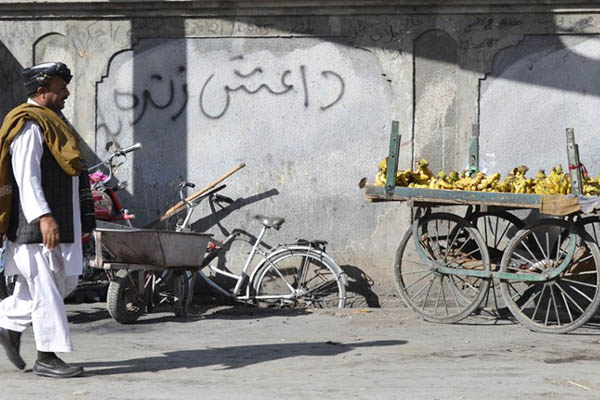
Banaras Khan—AFP
Analysts say militant group finding it hard to establish roots due to prevalence of other terror groups, differing ideologies.
As investigators probe connections between the Orlando killer and the Islamic State group, analysts say the jihadists are struggling to gain a foothold in one country repeatedly linked to their high-profile attacks: Pakistan.
White House hopeful Donald Trump mentioned Pakistan in a speech this week in New Hampshire as he doubled down on anti-immigration threats in the wake of the bloody rampage in Orlando. Trump cited an attack in California last November, when a Pakistan-born woman and her U.S.-born husband were praised by I.S. as “soldiers” of the caliphate after killing 14 people.
Other murky links between Pakistan and I.S. attacks have also emerged. Two people were killed in France on Monday by a man claiming allegiance to I.S.—and known to French intelligence for his role in a Pakistan-linked jihadist group. In April, Austrian prosecutors said they are investigating a Pakistani held in connection with last November’s deadly assault on Paris, also claimed by I.S.
Washington earlier this year designated an I.S. affiliate—the “Khorsan Province”—as an Afghanistan- and Pakistan-based terrorist organization. But Islamabad officially denies I.S. has a formal presence in the country.
Analysts say that while the group’s ultra-violent ideology has seen some success as a recruitment tool, I.S. is still scrabbling for purchase in Pakistan largely due to competition from well established extremist groups already there. “My sense is that it has had limited success mainly because it has to compete for recruits with indigenous jihadi organizations,” said Marvin G. Weinbaum, director of the Pakistan Center at the Middle East Institute in Washington D.C. “I don’t see it as having the potential to make large-scale territorial gains and existentially threatening Pakistan as a nation,” said Aymenn Jawad Al-Tamimi, a research fellow at the U.S.-based Middle East Forum. “I am also somewhat skeptical of the potential to supplant Al Qaeda and the Taliban,” he wrote in an email to AFP.
Attacks claimed by I.S. in Pakistan are rare, the most significant being a 2015 gun assault on a bus in Karachi that killed 44 people. However, Pakistani officials told AFP that hundreds of suspects have been rounded up as authorities try to break a domestic I.S. recruitment network.
“Educated, motivated and unemployed youth are an I.S. recruitment base in Pakistan. We have busted several recruitment cells here,” said a senior security official on condition of anonymity. “Their focus is on the middle-class youth, many affluent and able to run operations of the I.S. state,” said Muhammad Amir Rana, a security analyst.
That means not only foot soldiers, but people who can “run cyber operations, hospitals, and administrative operations,” he said, estimating that some 700 young Pakistanis have already left to join I.S.
Islamic organizations and security sources say at least two dozen people suspected of I.S. connections have been detained in Karachi. Authorities also found evidence of I.S. recruitment efforts in Punjab province, and made arrests in 2014. Last year authorities traced a mother-of-four who went missing from Lahore with her children over fears she had left the country to join I.S. Her family says she is now in an I.S.-controlled area of Syria along with another Pakistani family.
Authorities have also arrested multiple people accused of I.S. sympathies with links to the religious political party, Markazi Jamiat Ahle-Hadith Pakistan (MJAP).
A senior party member told AFP that his son had become a jihadist and is now missing. “Some people say he has gone to Damascus, others say to Afghanistan or Turkey,” Talib-ur-Rehman Zaidi said.
In Pakistan’s northwestern tribal belt that borders Afghanistan, analysts say I.S. are targeting militants already operating there. “My impression … is that I.S. mainly attracts and tries to recruit disillusioned members of the Taliban movements as well as the likes of Lashkar-e-Taiba,” analyst Al-Tamimi said.
However they are not succeeding, says analyst Rana, because of sectarian differences between the militants.
The jostling of Pakistan’s array of other extremist groups means I.S. will not become a threat to Islamabad “any time soon,” said Weinbaum. But the group’s seeming inability to establish itself on Pakistani soil may not deter “lone wolf” attacks, as U.S. investigators believe happened in Orlando.
“Individuals just associate themselves with them [I.S.],” president of MJAP Sajid Mir told AFP, as he denied any links between his party and the jihadists. “We have no connection—what I.S. is doing, that is not jihad but barbarism.”
